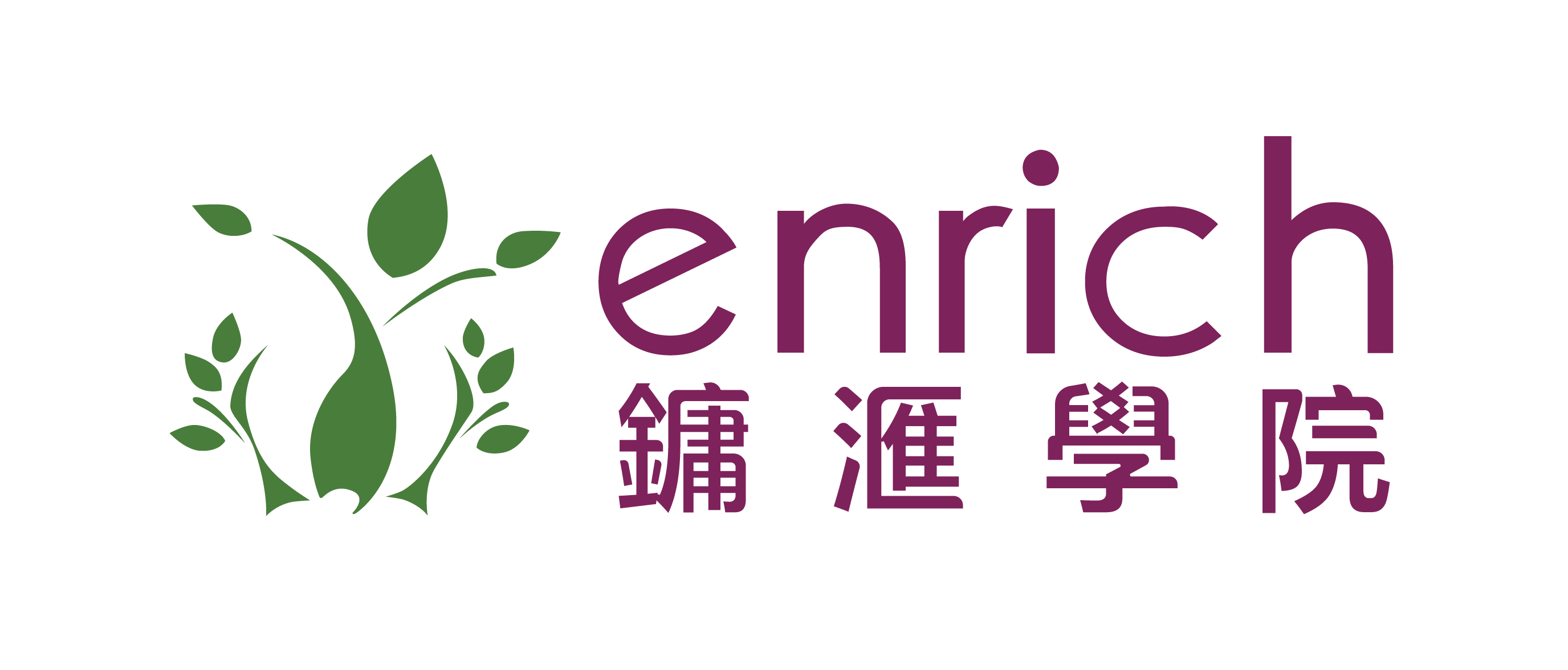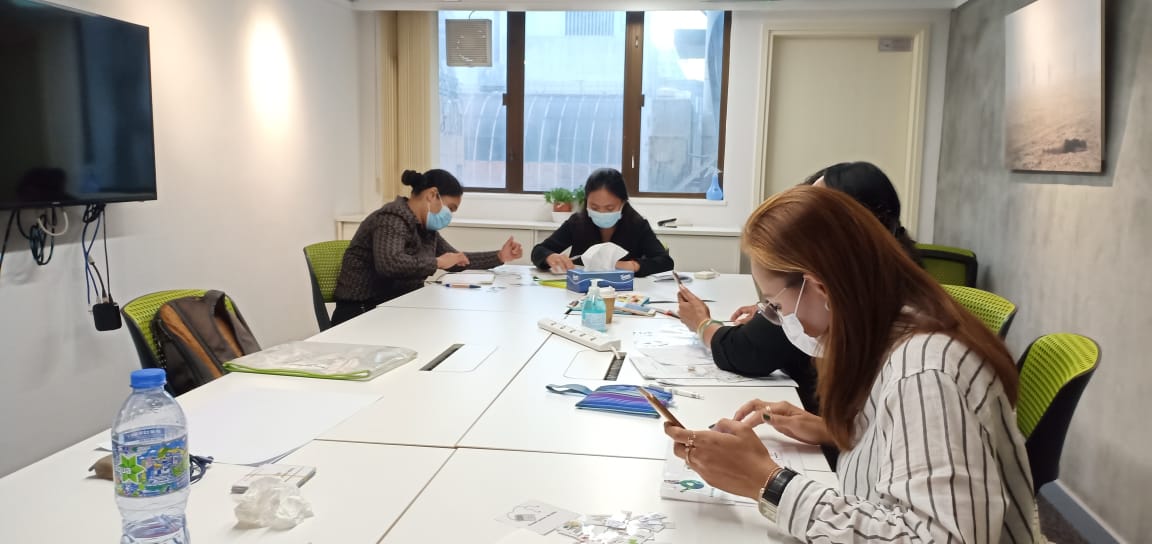[Press Release] Survey finds nearly 30% of migrant domestic workers pay 1-3 months’ salary to get their first job in Hong Kong
Workers have access to e-wallets but more needs to be done
to improve financial planning across the whole migrant worker journey
18 December 2023, Hong Kong – A survey on the financial, work and living conditions of migrant domestic workers in Hong Kong has found that a great number of them start their first job in the city with a significant debt incurred from recruitment agencies. Meanwhile, the use of e-wallets by the majority of the respondents shows encouraging sign that they can now manage their personal finances more easily, although more needs to be done to enable more financial services to be made available to them.
The “Annual Survey on Migrant Domestic Workers” was conducted by Enrich HK and HelperChoice during November 2023. A research team led by Associate Professor Lucy Jordan at the Department of Social Work and Social Administration of the University of Hong Kong provided expert consultation on survey development and conducted analysis of the data collected in this survey. A total of 112 migrant domestic workers from the Philippines and 42 from Indonesia have responded to the survey.
First launched in 2021 during the peak of the Covid-19 pandemic, this is the third year the survey has been conducted, and focuses on the conditions of migrant domestic workers during the city’s post-pandemic recovery.
On their financial conditions, recruitment agency fees are the main source of debt. Over 30% of the Filipino respondents have paid 1-3 months’ salary in agency fees for their first job, whereas 43% of the Indonesian respondents have paid 3-6 months’ salary in agency fees for their first job. Over half (55%) of the Filipino workers borrow from family and friends to pay for recruitment-related fees and costs of their migration, while 79% of the Indonesian workers surveyed pay through salary deduction.
Lucinda Pike, Executive Director of Enrich HK, says, “Starting the migrant worker journey with a huge debt has impeded on their ability to make plans for the future, which shows the importance of understanding the full costs entailed – from pre-departure, through their time in Hong Kong, and their journey home. More work needs to be done to help them with financial planning right from the start of the journey and understand their options.”
Mahée Leclerc, CEO of HelperChoice, adds, “Employers could help by having a conversation with their migrant domestic workers even as early as in the recruitment stage whether any extra fee has been charged to the worker. We also hope to stress to workers that not all recruitment agencies charge a fee and that alternatives do exist.”
On the ability of the workers to manage their own finances, it is encouraging to find that the majority of the respondents find access to financial services to be relatively good, and many of them have been using some form of e-wallets.
On the whole the respondents were not in denial about their financial situations, were able to stick to a budget and were able to deny requests from friends and family to protect their finances.
When asked about their plans for the future when day return home one day, the majority said they have planned to set up a business back at home, while the majority – in particular those from the Philippines – said they did not feel financially ready to retire.
“On the back of this improvement of accessibility of e-wallets to migrant domestic workers in the city, we hope to see improvements in access to other financial services, such as investments, to fully reflect financial inclusion for migrant domestic workers in Hong Kong,” says Pike.
On work and living conditions, workers from the Philippines work an average of 14.03 a day, and those from Indonesia work an average of 14.60 a day. Although having excessive working hours and a lack of rest are cited as some of the main concerns among most migrant domestic workers (at 37% and 30% respectively), the majority of the respondents (77%) do have regular breaks during a work day. Other key concerns are lack of food, and verbal and emotional abuse.
Leclerc encourages employers to take the initiative to bring about better communication with their migrant domestic workers, who are required by law to live at their residence. She says, “We encourage employers to set aside a daily or weekly meeting time to catch up with the worker on their work in order to reduce miscommunication and frictions. With the worker living at the employer’s residence, it is also important to respect the boundary between work and rest – just imagine living with your boss!”
Today marks the International Migrants Day, a day that has been set aside by the international community to recognise the important contribution of migrants while highlighting the challenges they face. It is encouraging to find that comparing to the information the respondents received before coming to Hong Kong, most of the respondents said the workload, living conditions, job nature, legal status, wages and employer identity were as agreed.
While migrants’ job mobility in their destination country might be limited because of their visa status, the majority (69%) of the respondents in this survey are able to find a new employer if they wish to, provided that the terms of the employment contract are respected, for example giving sufficient notice. Only 10% said they could not change to a new contract because there was no job available locally.
“Ethical recruitment agencies combined with financial literacy training is essential to have the best chance of a successful migration, whereby migrant domestic workers can achieve their financial goals and return home better off rather than worse off,” says Pike.
For media enquiries, please contact:
Lucinda Pike | Executive Director, Enrich HK | Email: [email protected]
Mahée Leclerc | CEO, HelperChoice | Email: [email protected]
About Enrich HK
Enrich HK is the leading Hong Kong charity promoting the economic empowerment of migrant domestic workers. We empower migrant domestic workers to invest in themselves through financial and empowerment education. Our workshops equip domestic workers with the tools to save, budget and plan for a future with greater financial security while they are here in Hong Kong.
For more information: www.enrichhk.org
About HelperChoice
HelperChoice is the first social impact startup dedicated to eradicating placement fees and human trafficking for the purpose of forced labour. The impact has been recognised by many organisations, including the International Labour Organisation. HelperChoice contributes to fair employment, and is a grantee of the DBS Bank foundation for social enterprises.
HelperChoice has facilitated more than 50,000 recruitments and estimates that more than 60 million euros of illegal placement fees were saved.
Learn more: https://www.helperchoice.com/






